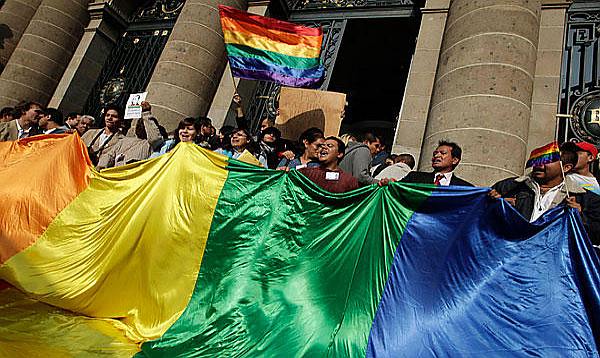Washington, D.C. - Being gay isn’t a basis for a Mexican man to fight removal from the United States, a federal appeals court ruled.
The US Court of Appeals for the 10th Circuit held Wednesday determined that the United States could deport Efren Neri-Garcia, who had argued that he would face persecution if forced to return to his native Mexico because he is gay.
Mr. Neri-Garcia might have been able to make that case in 1994 when he left Mexico, but the appeals court said circumstances had changed in the country since then, pointing to two human rights reports by the State Department from 2009 and 2010.
The reports note, among other things, that Mexico City has legalized gay marriage and adoption by gay couples, and that the Mexican Supreme Court has required all Mexican states to recognize gay marriages performed in states where it is legal.
Mr. Neri-Garcia directed the immigration courts to news reports about deadly attacks on LBGT activists in Mexico. (There have been several in recent years.) But the immigration courts determined — and the 10th Circuit agreed — that the government of Mexico had taken and was continuing to take significant steps to prevent violence and discrimination against gay men.
The Department of Homeland Security, represented by the Justice Department, "established…a fundamental change in circumstances in Mexico such that Neri-Garcia’s life or freedom would not now be threatened as a result of his sexual orientation," according to the 11th Circuit.
The court denied Mr. Neri-Garcia's application for asylum under the Immigration and Nationality Act and the United Nations Convention against Torture.
A lawyer for Mr. Neri-Garcia, Dario Aguirre, said the 10th Circuit set a dangerous precedent. The court, he said, essentially endorsed the idea that "the government can trump simply by saying the State Department says everything is cool."


